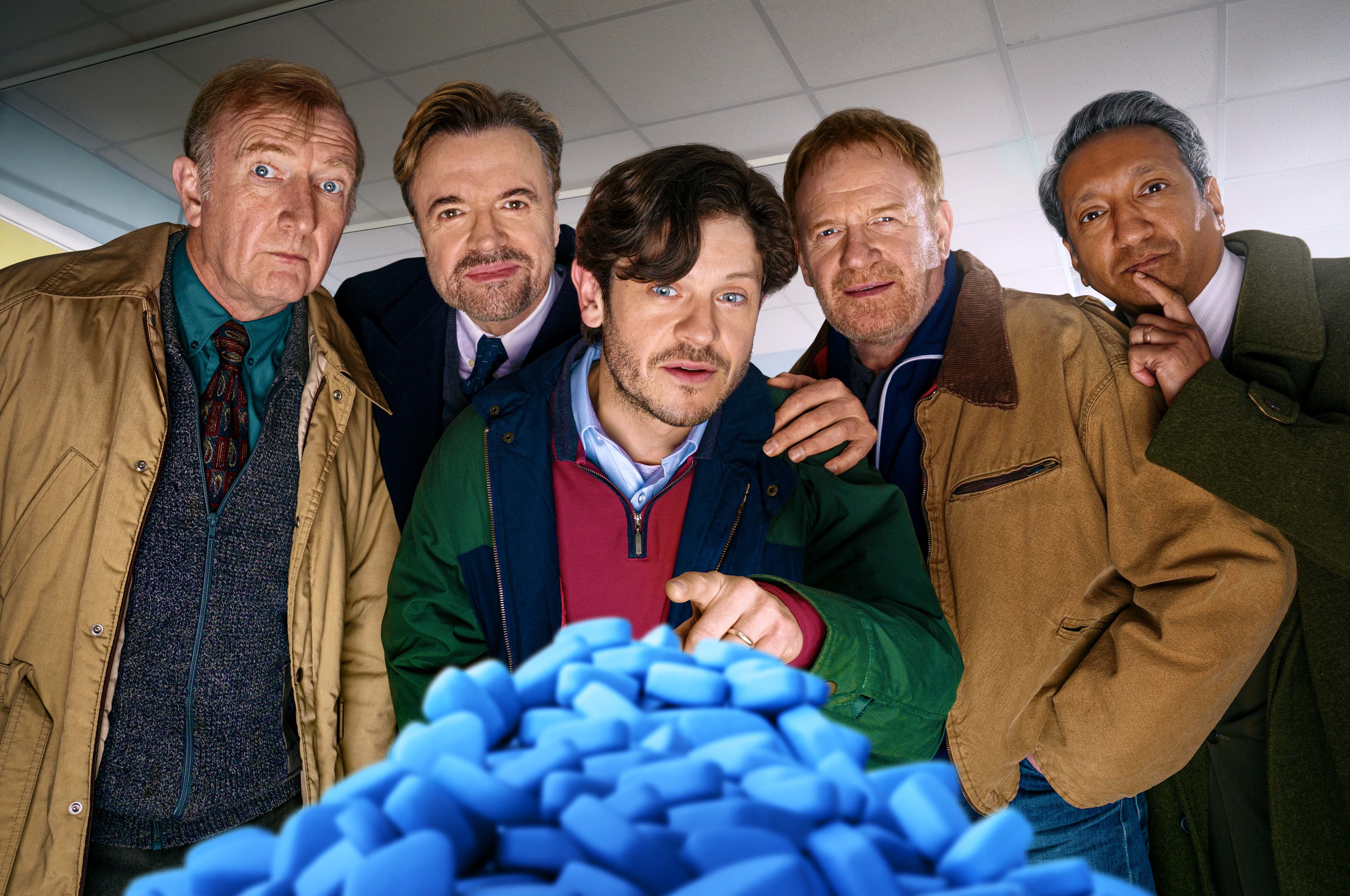
Men Up is a one-off drama showing on BBC1 during the Christmas 2023 season which mixes seriousness and humor as it takes a look at the remarkable true story of one of the world's first medical trials for the impotence drug that became known as Viagra. It will show what happened as the trials were held in Wales at Swansea’s Morriston Hospital in 1994.
Written by Matthew Barry and executive produced by Russell T Davies, the moving drama features a number of top British stars including Iwan Rheon, Aneurin Barnard, Joanna Page, Alexandra Roach, Phaldut Sharma, Paul Rhys, Steffan Rhodri and Mark Lewis Jones.
Produced by Quay Street Productions and Boom for BBC Wales, here's everything you need to know about BBC1 drama Men Up...
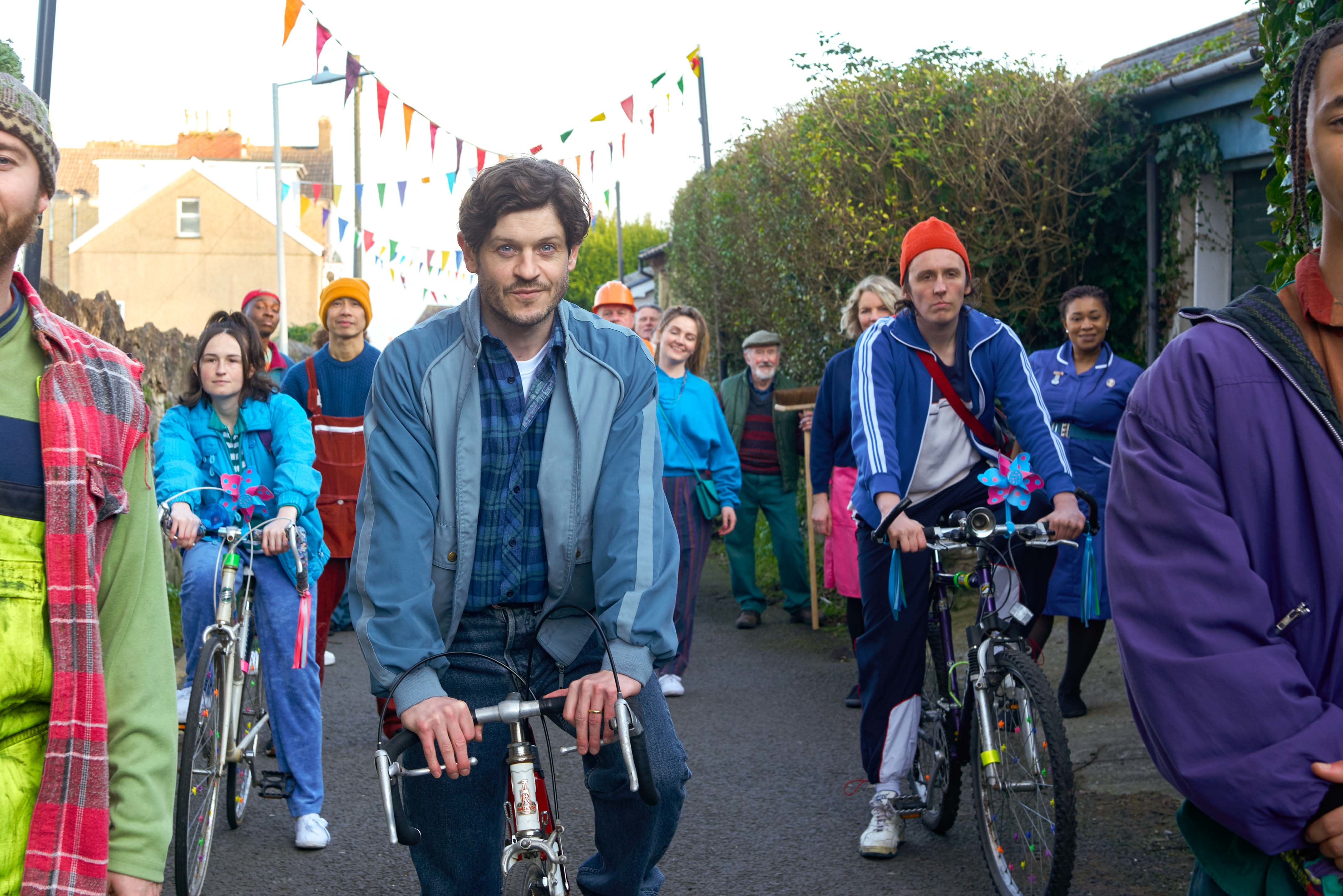
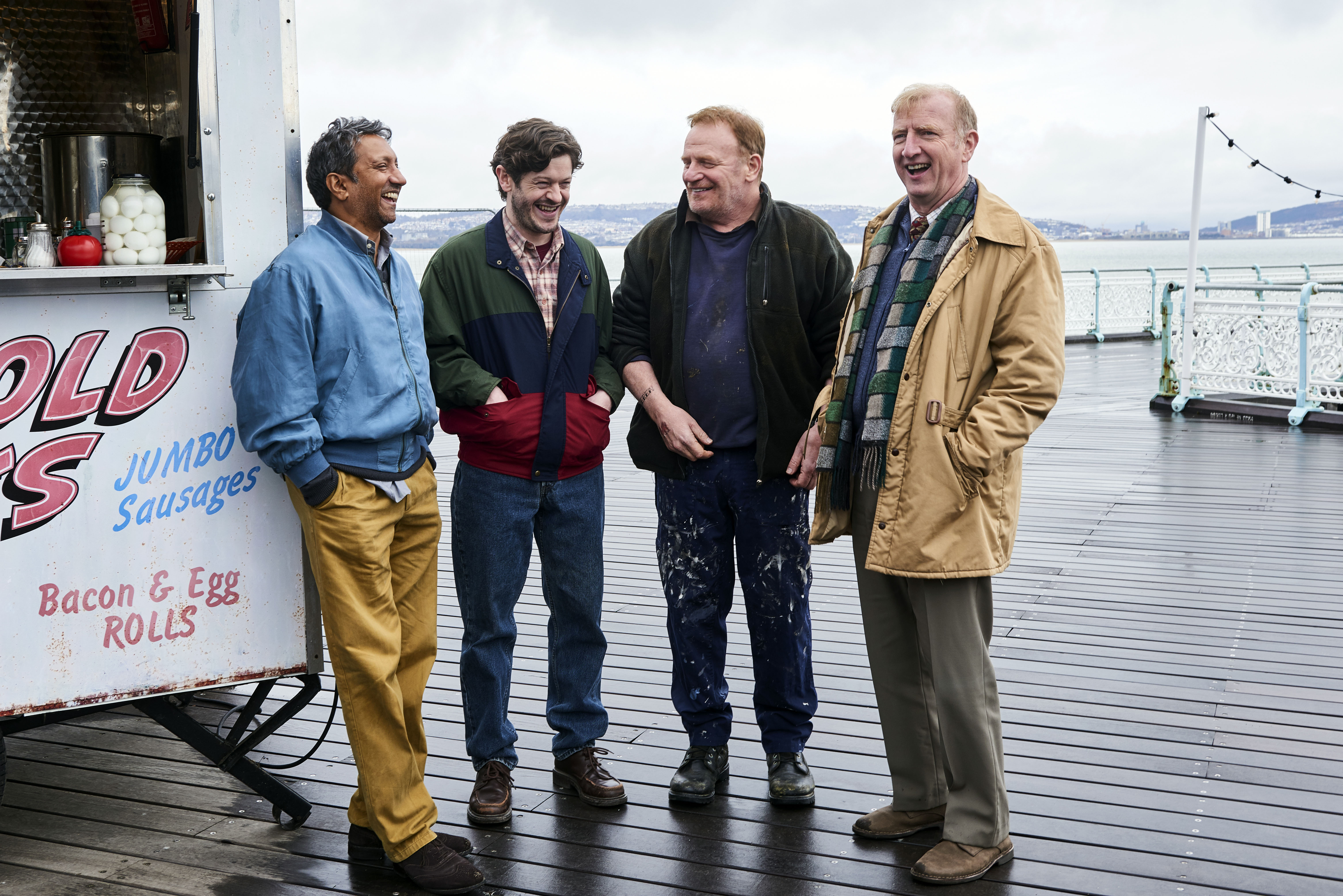
Men Up release date
Men Up is a one-off drama that will launch on BBC1 on Friday December 29 at 9pm. This 2023 film will also be available on BBCiPlayer. We'll update here when we learn if the drama has an international launch or channel or comes to a streaming service such as Netflix or Prime Video.
Is there a Men Up trailer?
Yes the Men Up trailer is now available! 'It's a pill!' is the favourite phrase at the start which then shows how the story plays out! Do take a look below and enjoy...
Men Up plot
Viagra is a 'little blue pill' that changed the lives for millions across the globe in the last few decades as it helped alleviate the misery of male impotence. Years before it came on the market, however, a group of ordinary middle-aged Welsh men bravely took part in one of the first clinical trials for an unknown drug which later became Viagra.
Meurig Jenkins (Iwan Rheon), Colin White (Steffan Rhodri), Tommy Cadogan (Paul Rhys), Peetham 'Pete' Shah (Phaldut Sharma) and Eddie O’Connor (Mark Lewis Jones) all had one thing in common. They all suffered from impotency which was affecting every aspect of their lives, and they were suffering in shame and silence, feeling like failures as men, lovers and husbands.
All these men had attempted their own fixes to impotence but nothing worked. Then they are presented with a lifeline — a place on a trial for an unknown drug thought to cure impotence led by the ambitious Dr. Dylan Pearce (Anerin Barnard) with support from clinical nurse Moira Davies (Joanna Page).
As each man grapples with their own insecurities and hides the truth from their loved ones — including their wives and partners Ffion Jenkins (Roach) and Teresa Rigby (Palfrey) who are also fighting their own battles — will this little pill be able to bring back their spark?
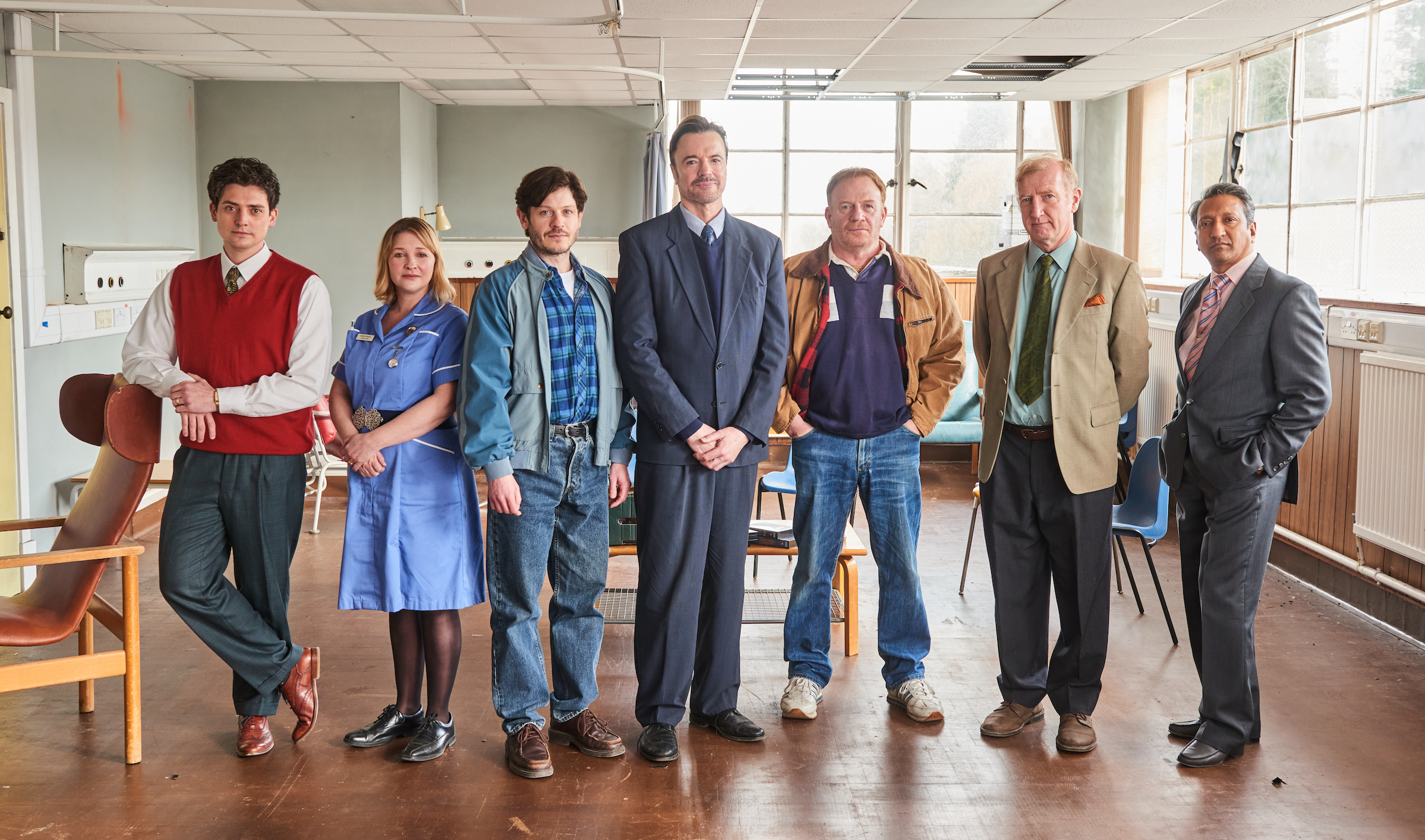
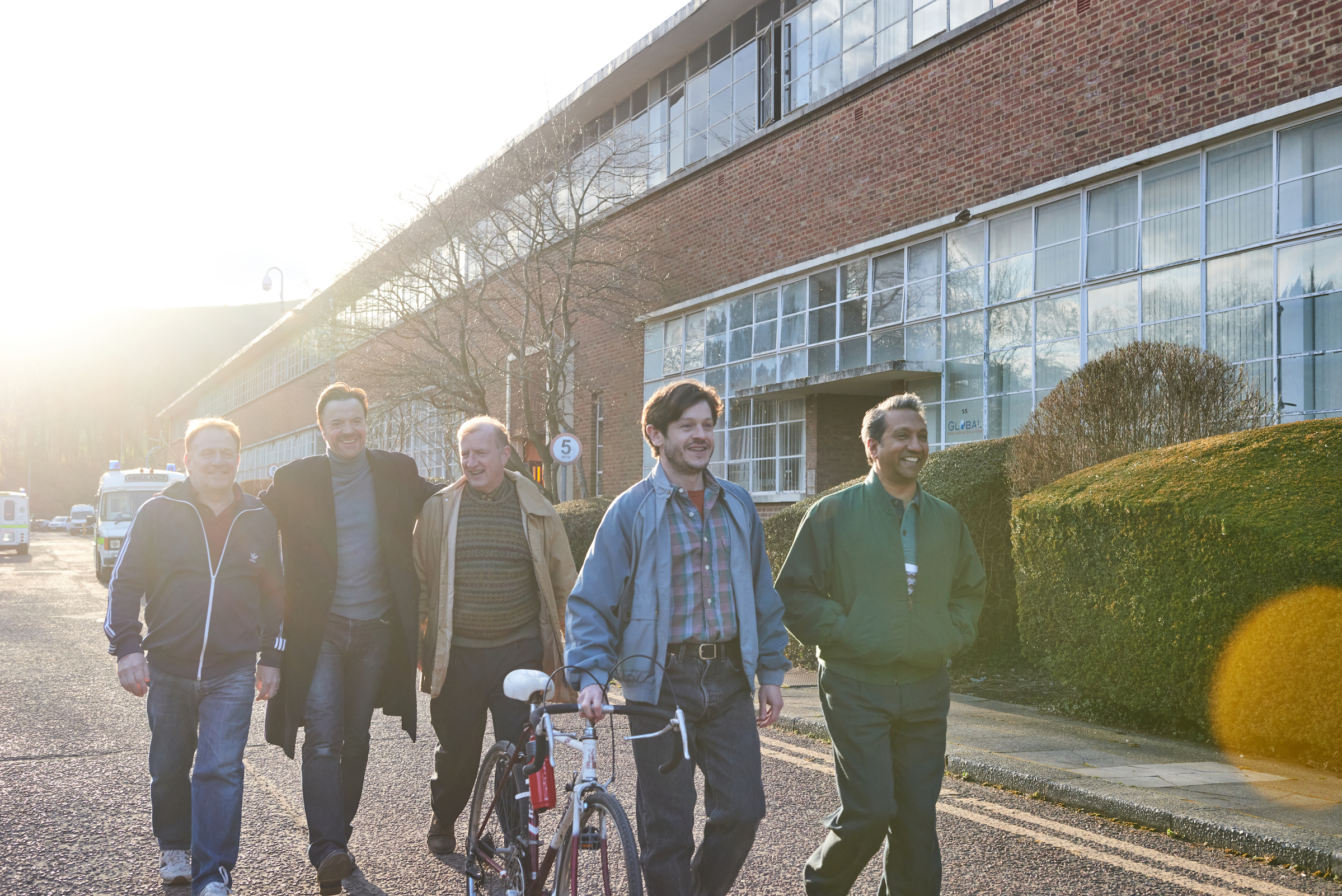
Men Up cast — Iwan Rheon, Aneurin Barnard and Joanna Page
The amazing cast for Men Up includes Iwan Rheon (The Light in The Hall, Game of Thrones, Misfits, Riviera) who plays medical triallist Meurig Jenkins yearns for intimacy with his wife, Ffion (Alexadra Roach). Aneurin Barnard (The Catch, Cilla, The Pact) plays Dr Dylan Pearce who carries out the trial in Swansea and Joanna Page (Gavin & Stacey) is the clinical nurse Moira Davies.
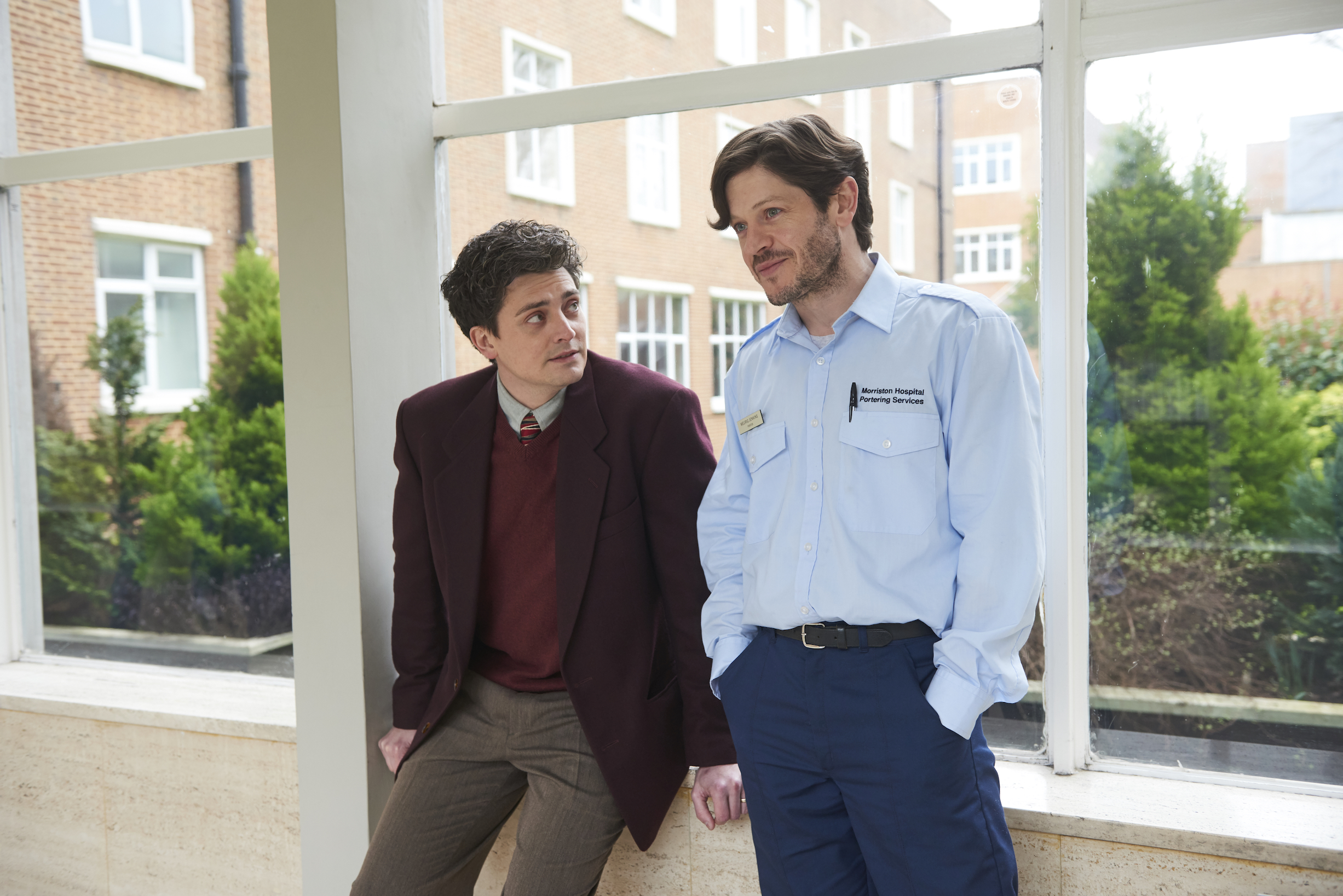
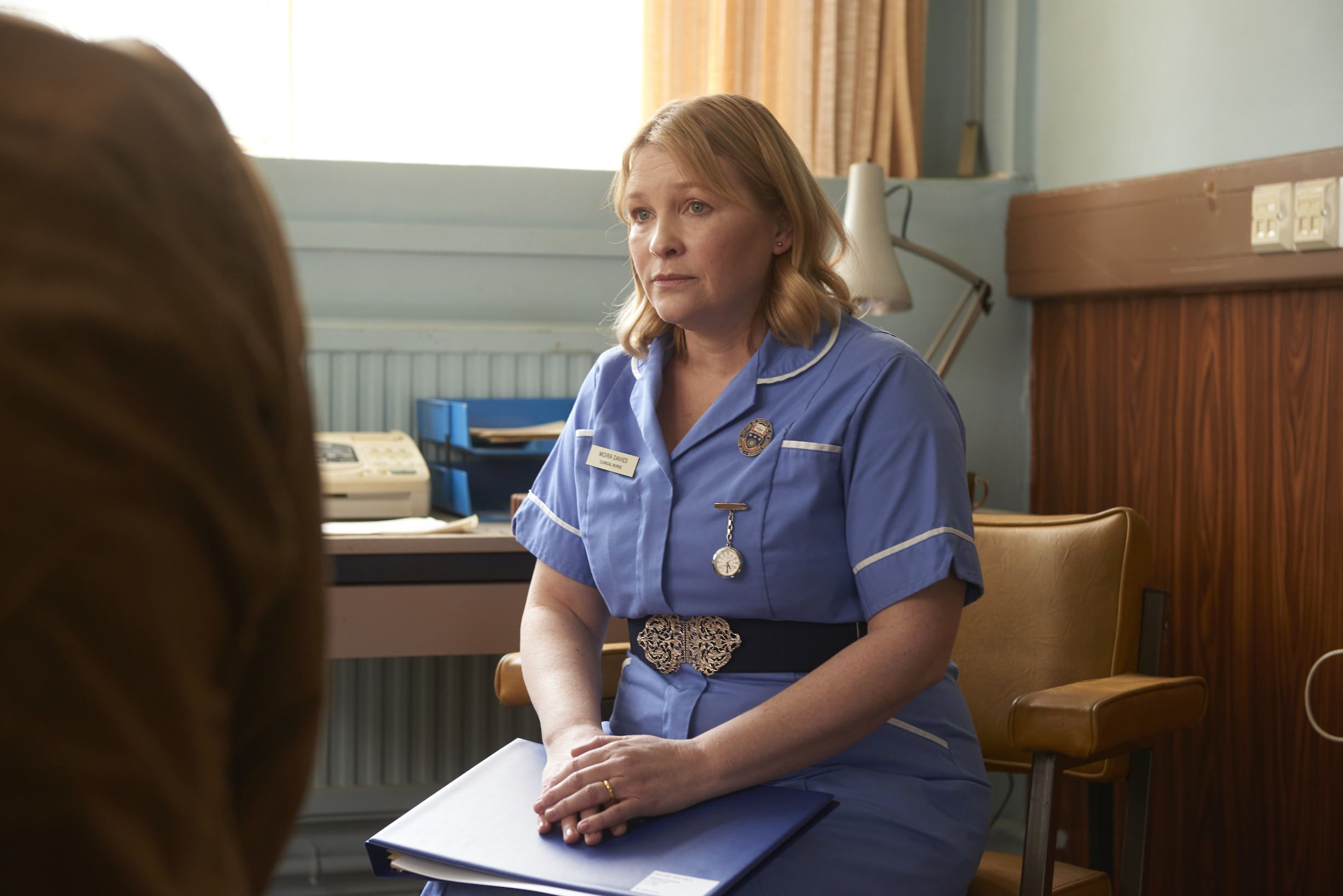
Who else is starring in Men Up?
Other actors in Men Up playing trialists include Paul Rhys (A Discovery of Witches) as Tommy Cadogan, Mark Lewis Jones as Eddie O’Connor, Peetham 'Pete' Shah as Phaldut Sharma and Steffan Rhodri (House of the Dragon, Temple) as Colin White.
Wives and partners are played by Alexandra Roach (The Light in The Hall, Killing Eve, Sanditon, No Offence) as Ffion Jenkins and Lisa Palfrey as Teresa Rigby.
Alexandria Riley (The Pembrokeshire Murders, The Pact), Nathan Sussex (It’s A Sin, Hollyoaks) and Katy Wix (Ghosts, Stath Lets Flats) round out the cast.
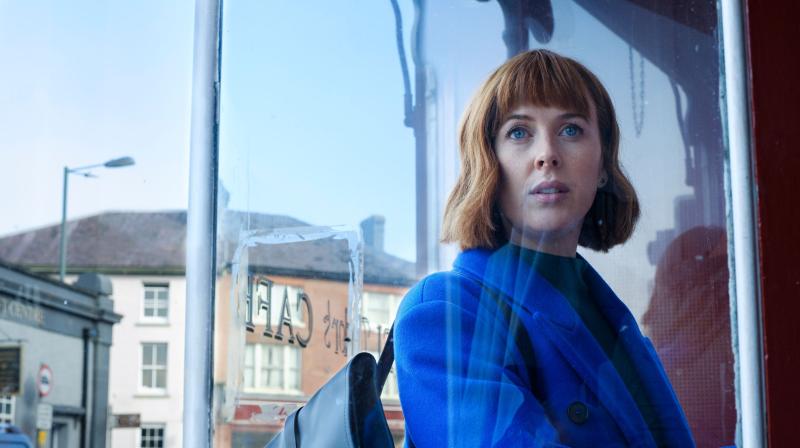

Interview: Iwan Rheon on playing Meurig Jenkins
What can you tell us about your Men Up character Meurig Jenkins?
Iwan Rheon says: "Meurig, who has just turned 40 and he’s been diagnosed with diabetes which has coincidentally happened at the same time his wife has been ill. So that’s been quite traumatic for everyone in the family. Up until this point they were living quite an idyllic 2.4 children life. Not that they were wealthy, but they lived a very normal life with two lovely sons. Their whole world gets turned upside down but he’s not able to express the problems he’s been having with impotency. He wants to rekindle the romance of their relationship but it’s become a vicious cycle in which nobody is talking and everybody thinks it’s the other person’s fault. That’s where we meet the two characters, at that melting pot of their relationship."
Had you heard about these trials in Swansea back in the 1990s?
Iwan says: "No, never, no. You couldn’t possibly make it up could you? It’s such a little diamond, a nugget of truth. I remember the hospital quite clearly and now it’s got a different significance.
Was there a part of you that worried how the subject of erectile dysfunction would be tackled?
Iwan says: "Obviously when I was hearing about it there was but as soon as I read the script, all of that went. It has been approached so beautifully I think, telling these men’s stories and those of their wives and partners in such a warm, heartfelt way. It is not about jokes about willies, which it could easily have descended into, and that would have been horrible. What I think is great about the film is that we talk a lot about men not talking very much or being able to express their feelings but what we find in this film is that the moment the characters do express their feelings and talk, everything changes for them. That’s the really poignant thing about it.
Have things moved on since the 90s with regards to men opening up about their feelings?
Iwan says: "I think we are moving in the right direction maybe but there’s still a long way to go. I think it’s finding what a lot of young men struggle with - what is a man these days? Ok, we’re supposed to be emotional but we’re also supposed to be hard. There’s a bit of confusion going on. That’s something that we as a society need to work on.
How did you find filming the sex scenes?
Iwan says: "Great. I think working now compared to when I first started is completely different. We have an intimacy co-ordinator and everybody is working together to make sure that everyone feels comfortable. I think by doing that you achieve much better scenes because there’s nobody there not feeling comfortable. I’ve known Alex (Alexandra Roach who plays Meurig’s wife Ffion) for a long time and we’ve both worked together a lot and we’re pretty good mates. When you work with someone and there’s a mutual respect there you can achieve more. From Alex and my point of view it was about figuring out where our relationship had gone wrong and what had happened. How it had changed from being childhood sweethearts where everything was great to suddenly not knowing each other and they’re blaming each other. Filming the sex scenes was approached in a very professional, comfortable way and that then represents on screen.
Do you think this is the perfect film for the time in between Christmas and the New Year?
Iwan says: "Yeah, I think it’s perfect for that gap. People are going to be together and I think it’s something they will watch together. It might make a few people a little bit uncomfortable. So many people have different experiences over Christmas and it can be an uncomfortable time and people can be very lonely and this film deals with all those issues. It deals with the idea that if you are lonely, you should reach out and it also deals with how wonderful it is to have family around you. I think it’s perfect for that.
Did it make you realise what a game-changer Viagra was?
Iwan says: "It’s massive. When we started shooting I went into a chemist and it was just there behind the counter. It’s incredible. The idea of just how simple it is, it’s now normal to us. Meurig says when he’s talking to the doctor ‘what, a pill?’ He can’t quite get his head round it. Just taking a pill to deal with this. That simple. There’s literally a pill for it. It’s quite amazing.
The problems that erectile dysfunction causes are about more than just having sex, aren’t they?
Iwan says: "Yeah, everyone’s relationship is falling apart because whether it is actually an issue for their partner or not doesn’t matter because inside the characters feel that. Especially being from quite a tough Welsh background, you can’t exactly talk to your mates in the pub about it. I think just the idea that this is available is so important and nowadays people are able to be like, “yeah I use it, why not?”
Would you like to see a sequel?
Iwan says: "Yeah, Men Up The Musical. I’m in!"
What research did you do?
Iwan says: "You hear about all these different kinds of treatments that they were using so I made sure I knew what they were. The rest of it, you take from yourself and what’s in the script. And then there’s building the relationship with Alex and the rest of it. But there’s not that much to do."
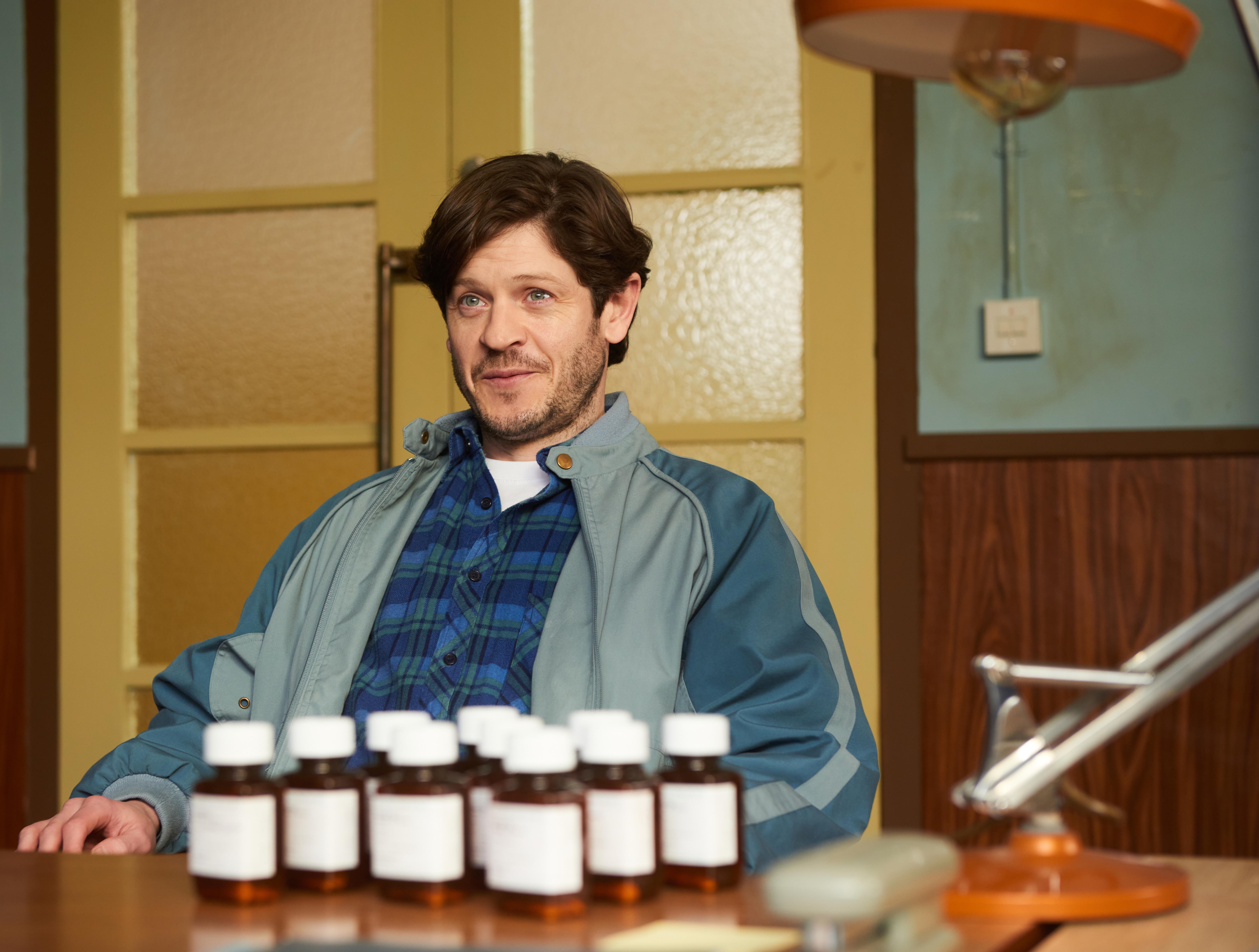
Interview: Paul Rhys on playing Tommy Cadogan
Tell us about your Men Up character Tommy’s story?
Paul Rhys says: "He’s a type 1 diabetic and a gay man which makes it a slightly different story for him. It’s 1994 in Swansea, so the world is a different place. It’s very close to us now in years but it was very different in its attitudes so Tommy encounters some prejudice. He doesn’t have children and central to him is his sense of himself as a man through virility. It’s very important to him. He’s very sexual. He’s been very sexual in the past and that is taken away from him and the only thing he can use prior to the discovery of Viagra is something called Caverject which is a horrible syringe into the shaft of the penis that doesn’t even work. It leaves you in terrible pain and it was awful for him. I think to have your virility taken away is something we don’t talk about, men never talk about things like this. Women are much more open. Tommy is just another silent person suffering alone and I think a loss of virility is a terrible thing to him and his relationship, which he wants to work. He’s nervous anyway, overthinking everything, so it couldn’t happen to a worse person."
Were you worried about how the issue would be tackled in the script?
Paul says: "It’s such a sensitive script. There is a lot of humour. It’s not morose but it’s quite sensitively done. The humour is the easiest way to get through to talk about the truth. It’s one of the gateways to telling the truth. There’s this clamp around talking about anything human, let alone as vulnerable as your own virility and sense of yourself in the world as a man. It’s a complex thing but the script is a very sensitive piece and we all fell in love with it.
Were you aware of these trials in Wales back in the 1990s?
Paul says: "No, I’d never heard of the trial. My auntie used to work in Morriston Hospital and live in Morriston and I was born two miles away but no I’d never heard of it.
Do you think men are better about talking now than they were then?
Paul says: "A bit but I wouldn’t overdo it. I think there’s an awful lot to do. Male suicide especially among young men is off the scale. It’s the biggest killer of men under the age of 35 so clearly something is not happening globally. But it’s better than it was, certainly. Just in my own experience with my friends, we’re much more open to talking about things. When I was a child you weren’t allowed to cry if you were a boy, you weren’t allowed to show any real sense of sensitivity. You were supposed to be a man, whatever that is. It was nonsense but things are changing mercifully. That’s really central to the film.
Was the men’s shared experience almost as important as the pill itself?
Paul says: "Absolutely. The pill doesn’t work for everybody but everybody is healed. We’re all healed through the mechanism of connection. The pill is not successful for everybody. Not everybody has a great result from it. But everybody comes out of this film better than they started.
Were you daunted by the thought of the sex scenes?
Paul says: "It’s changed to when I first started. The first ten years of my life I hardly ever had my clothes on. But I was brought up in a very repressed Catholic Welsh upbringing and I never saw naked bodies. You just didn’t. I didn’t see a pornographic image until I was about 25. The scene where we were on the beach kissing was quite a big thing. Also, as you get older taking your clothes off is awful. Jesus Christ. You’re like “don’t shoot me from up there. Don’t shoot me from there.” Then when you come to do it, you go, “oh sod it I’ll just do it. It doesn’t matter”. So, it is complicated. Having an intimacy co-ordinator does make things much better. I think particularly for girls when I first started it was awful. Awful. And the crews were all men, there was very rarely a female presence. It’s still very male actually but it’s changing all the time. I always used to feel for the girls. I mean we’d be in it together andyou’d try to cover their body and help in some way but so often with young people they are slightly abused and have been in this industry in many ways. Girls have been particularly vulnerable. This was good because we all grew to trust each other through rehearsals and everything was dealt with very sensitively and the script isn’t graphic. One of the worst things for me was doing the injecting shot because it’s just so painful for him. You feel so much compassion for this man who is trying to keep his life together in some way and trying to be virile for his partner. I think the cost was more in that than taking my clothes off. That’s a bit sad at my age."
Do you think it’s a good post-Christmas movie?
Paul says: "I do. One of the central themes of it is ‘don’t judge books by their covers’. You don’t know what inner burden a person is carrying around. For example Meurig’s family seems to be a perfect set up and from the outside it might look like they haven’t got any problems. You think they must be a having a wonderful Christmas but the inner burden they are both carrying is enormous. And children feel that, so I think the message is to connect. It’s the perfect thing for Christmas as there’s an epidemic of loneliness in the world. It’s awful. We all know it. We all know the sense of isolation and loneliness and I think particularly at times like Christmas there’s an expectation of happiness and good cheer. Not being too gloomy because I’m sure people are going to have a happy Christmas but you never know the price or the burden your partner is carrying, let alone the family next door."
Did the Men Up script bring home how important the development of Viagra was?
Paul says: "Yes. It changed people’s lives but the idea that there would be a pill at that time was so extraordinary and if you weren’t prescribed it from this trial you had to wait many, many years until it would be available. To be given it and then not given it is also awful. Now, there’s no shame around it."
Would you like to make a sequel?
Paul says: "Yes, based on these people’s lives. You’d like to find out more about all of them. Well maybe there should be Men Up, the series."
What research did you do?
Paul says: "I did a bit. I was in New York and there was this guy who was a specialist on male fertility, so I spent a couple of hours with him and he told me all about Caverject and how to do it and everything. In literal terms, that was all. A lot of it was just remembering my childhood and remembering that time and what it was like."
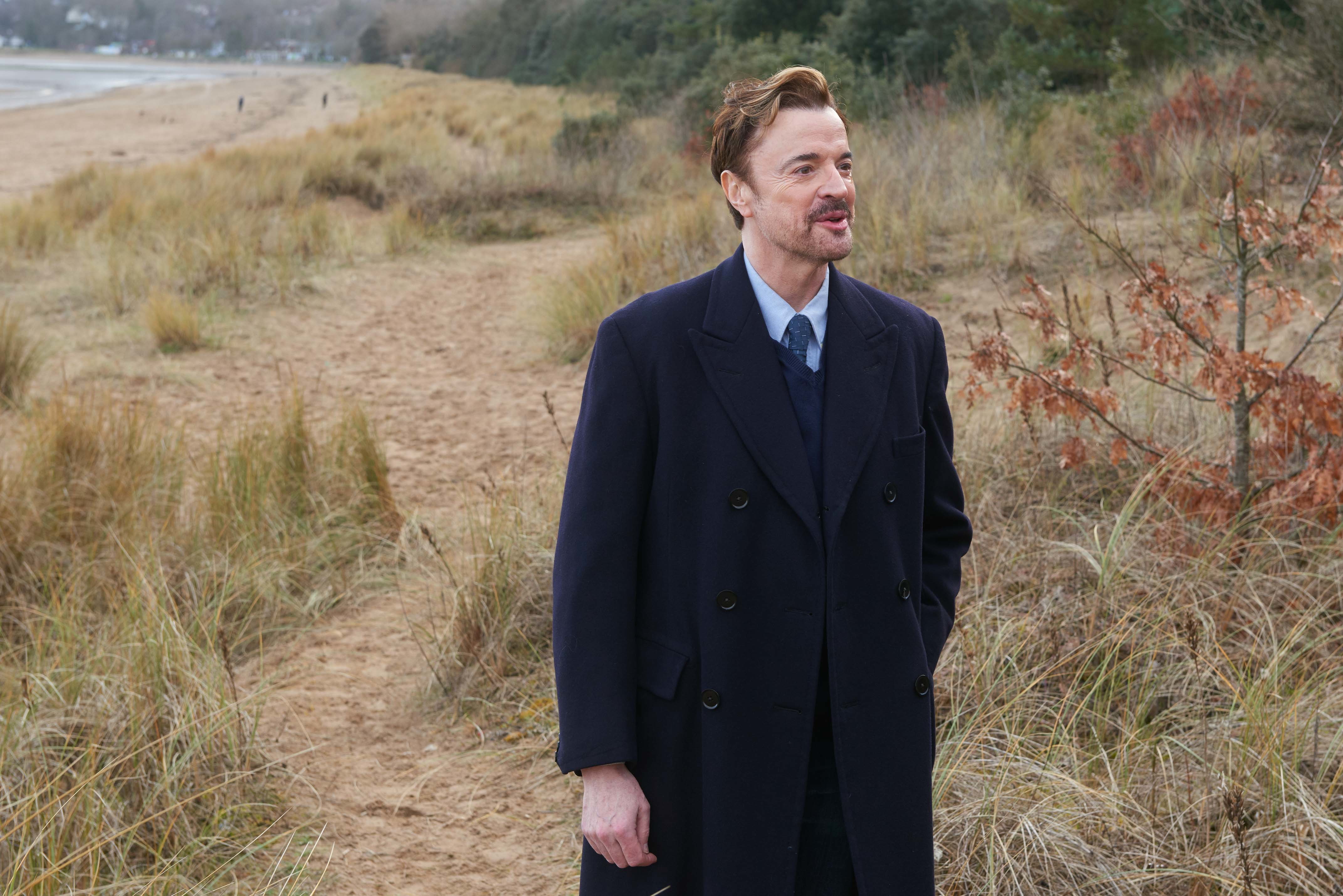
Behind the scenes and more about Men Up
Men Up is written by Matthew Barry and directed by Ashley Way (White Lines, Stella, Merlin), and produced by Karen Lewis (The Salisbury Poisonings, Years and Years, Happy Valley). It's from Quay Street Productions.
The executive producers are Nicola Shindler (Nolly, It’s A Sin, Happy Valley) and Davina Earl (Safe, Come Home) for Quay Street Productions, Rachel Evans for Boom, Matthew Barry and Russell T Davies (Nolly, It’s A Sin, Doctor Who) and Rebecca Ferguson for the BBC.
Writer Matthew Barry says: “Who knew that one of the first Viagra trials in the world took place in 1994… in Swansea! I’m beyond delighted to be working with Nicola, Russell, and the entire team to bring this extraordinary tale to the screen.
"People hear the word impotence, and they wait for the punchline. But this story is about so much more. And with an incredible Welsh cast, led by Iwan Rheon and Alexandra Roach, I can't wait to bring it to the screen.”







